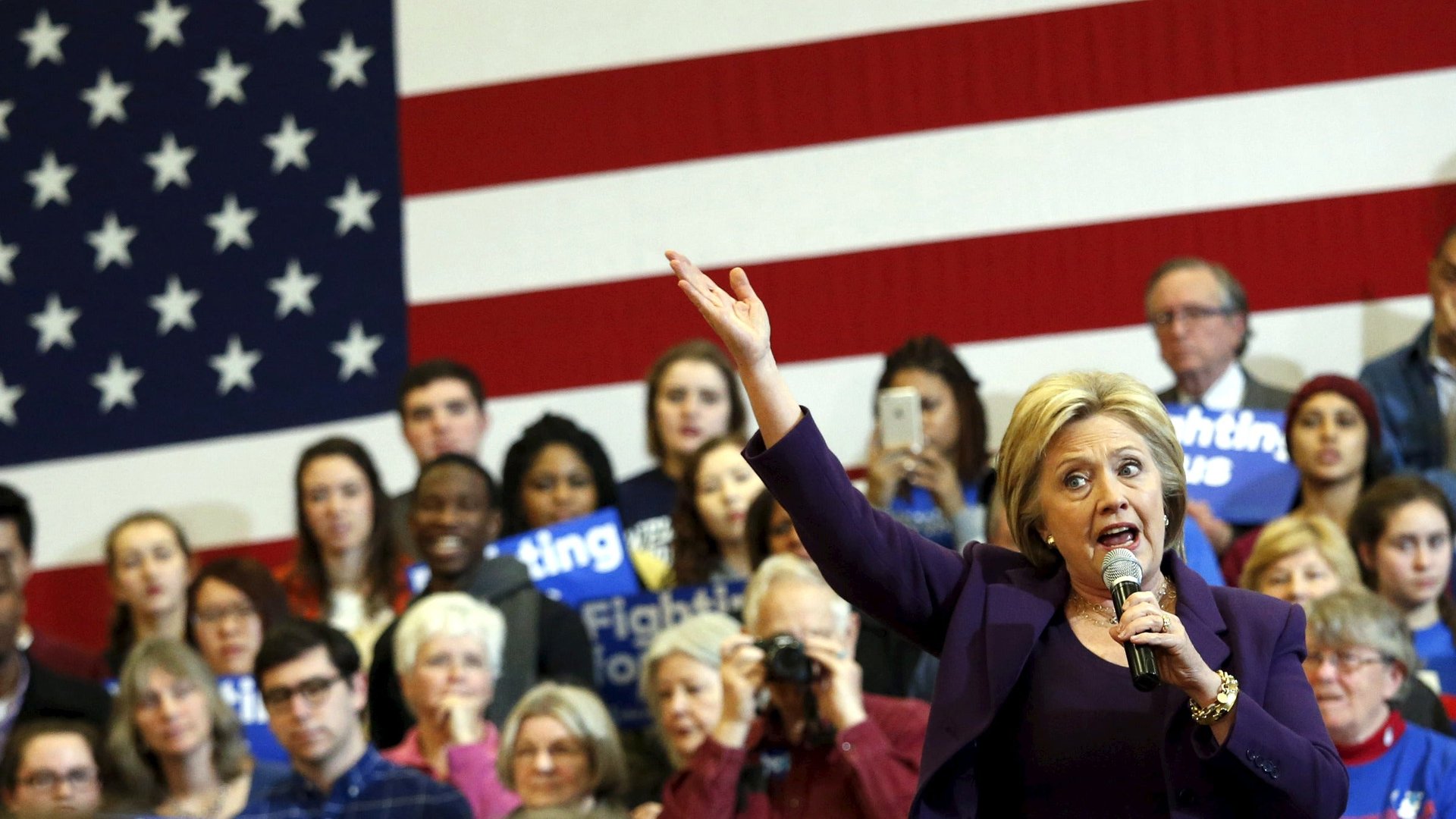Hillary desperately needs New Hampshire moms, because their kids are feeling the Bern
Nashua, New Hampshire


Nashua, New Hampshire
The lesson of the Iowa caucus was simple: Political field work matters.
That was particularly true in the Republican race: Donald Trump’s enthusiastic but undirected backers were outmatched by the disciplined voter turn-out operations of senators Ted Cruz and Marco Rubio. And for the Democrats, who emerged from the first contest in a dead heat, it was critically important to make sure every single supporter turned up.
Now that the race has moved to New Hampshire, both Hillary Clinton and Bernie Sanders held rallies almost the moment they arrived, urging their supporters to throw themselves into a final week of campaign work.
The cultural difference is plain: At Clinton’s rally, a middle-aged crowd heavily salted with women bopped patiently to Taylor Swift’s “Shake it Off.” At a Sanders event dominated by students from nearby Keene State College, young people grooved ironically to the late David Bowie’s “Magic Dance.”
The demographic split was reflected in entrance polls from the Iowa caucus: Sanders dominated among young voters and those who hadn’t voted before, but older voters—especially women—went Clinton’s way.
This divide between two of the most important blocs in the Democratic coalition can be attributed to several factors. Sanders’s willingness to promise a near-overnight political revolution especially appeals to idealistic young people whose exposure to Clinton has been as an establishment Democrat, not a victim of conservative attacks. Clinton, meanwhile, will always be a talisman for longtime female Democrats. And her hard-headed focus on the possible appeal to those who have witnessed Washington’s bruising battles or been disillusioned by previous Democratic promises to push through progressive policies, only to see them come to naught in the face of Republican opposition.
Either way, the candidates each need their core demographics to vote in large numbers next week.
New Hampshire Governor Maggie Hassan opened Clinton’s first event by talking about the challenges of raising a disabled child, and she got a big round of applause when she noted that “the history of women has been a history of silence.” Clinton opened her speech by promising to “go after inequality,” but the audience did not start cheering until she continued “—not just economic inequality, we have to deal with racial inequality, with gender inequality, with sexual orientation inequality,” and onward.
At Sanders’ event, he was introduced by a student activist from Keene and an actress who just enrolled at Harvard, described a woman paying off both her own student loans and her daughter’s, and got a rise out of the crowd when he asked them how much debt they had—one woman boasted ruefully that she owes $183,000. His plan for debt-free tuition was central to the speech, as were his reminders about the special interests “rigging” the economy against young people.
Clinton doesn’t expect to win New Hampshire. Sanders, who hails from the neighboring state of Vermont, has held a lead in the polls here for more than six months, thanks to high name recognition and its Bernie-friendly demographics: Like Vermont, it is a largely white state where Democratic voters tend to be liberal, due in part to a growing population of Massachusetts expatriates.
But while Clinton’s aides are saying any Sanders win should ”carry an asterisk” for those reasons, her campaign is throwing everything at the state, bringing in 150 volunteers from her New York headquarters. Simply outperforming low expectations is the goal, as her campaign tries to carry momentum into friendlier contests in Nevada and South Carolina, and slow Sanders’ accumulation of pledged delegates who will actually determine the nomination this summer.
For Sanders, a strong win would cement the status he earned in Iowa as a viable challenger to the Democratic party establishment. But his campaign aides know he must do more than that to get likely Clinton voters in future states to reconsider their positions. The delegate math for Sanders is difficult if he cannot over-perform in states that favor him, and he will need every bit of help he can get from New Hampshire.